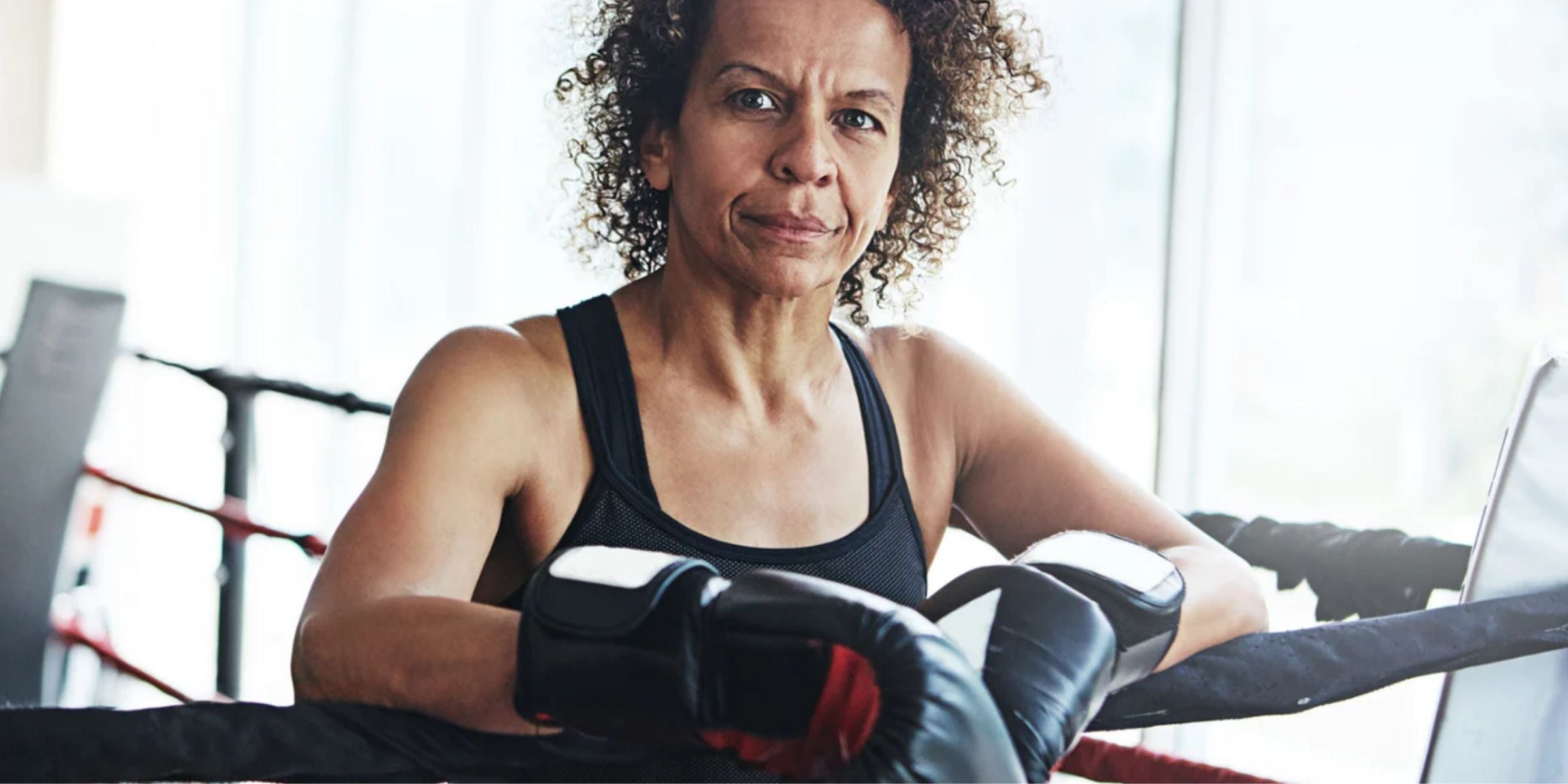When your body starts the journey through menopause, you may feel as though it’s just another thing you need to accept. If you’re experiencing disruptive symptoms, self-care can be the furthest thing from your mind. However, it’s a good time to think about the habits we prioritise as self-care, as they can help our bodies adapt to the hormonal changes.
If you’ve felt disconnected from your desired state of wellbeing, this blog is all about building a toolkit of self-care habits to help you thrive in menopause. It’s the idea of consistently dedicating time to yourself to support your own wellness (especially if you’re good at putting the needs of others first). These are simple, easy to use practices that everyone can make a part of a daily routine to pave the way for more joy and energy when you’re in the stages of menopause.
Building your mind-body connection
Self-care practices like yoga, breathing exercises, meditation and time in nature are all great tools to cultivate inner peace. Collectively, these habits help to build mindfulness, which is the act of focusing on the present moment, drawing your attention inwards, and tuning in to your body. When prioritised consistently, these habits can develop a calmer and clearer mind.1
Another way to build mindfulness is through habits that help process our experiences. Journalling is an excellent way to reflect on how to show gratitude and self-compassion to ourselves. Whichever combination, these practices can all help women find balance, which is just important as eating a nutritious diet and taking the right supplements. All you need is an open mind to find peace in the present, wherever you are.
Cultivating a strong mind-body connection helps keep our bodies in equilibrium, reducing stress and keeping our mind clear and calm. Feelings of stress, tension & unrest can worsen menopause symptoms, so this is a great tool to add to your menopause management kit.
Taking baby steps towards better choices
To support wellbeing, self-care can also mean consciously building good habits to replace some less-than-healthy tendencies. Habits like drinking alcohol to unwind, smoking to keep calm, and not getting quality sleep all have the potential to have negative effects on the body and drive menopausal symptoms. Replacing these habits with simple mindfulness practices, like going for a daily walk, working out, making time for hobbies that bring you joy, and carving out time and space for healthy social connection are some additional ways to prioritise self-care habits for a healthier, more balanced you.
Develop a toolkit for managing menopause symptoms
80% of women experience menopause symptoms2, and many are not aware of the options they have to help manage them. Speaking with a healthcare professional such as a doctor or naturopath is a great place to start your journey - we’ve developed a guide to help you start these conversations. There are plenty of lifestyle adjustments that can help, along with medications and complementary medicines that may be used in conjunction to help you.
Remember to self-care – it’s the habits that count
While menopause can sometimes be challenging, you can support yourself to navigate the journey by prioritising self-care. Every woman's experience in menopause is unique, so explore these tips for yourself and find out what works best for you during this time. Embrace the changes, and thrive in this new phase of life, owning your menopause journey.
References
- Dawson AF, Brown WW, Anderson, et. al. Mindfulness-based interventions for university students: a systematic review and meta-analysis of randomised controlled trials. Appl Psychol Health Well Being. 2019 Nov 19. doi: 10.1111/aphw.12188.
- Symptoms of Menopause, Jean Hailes, 19 August 2022




